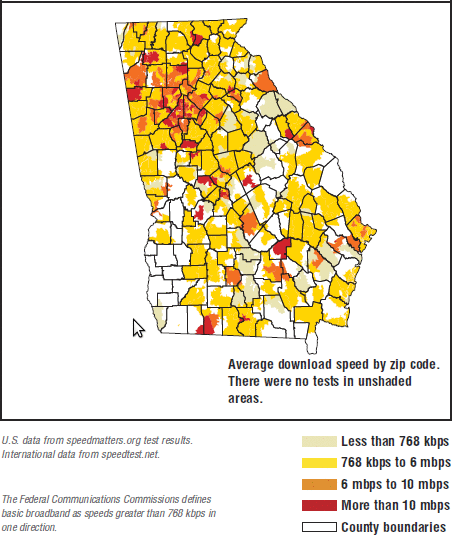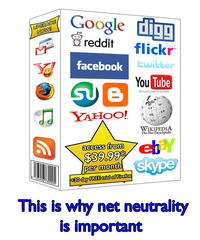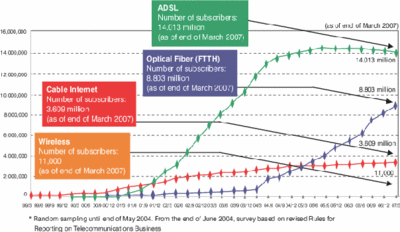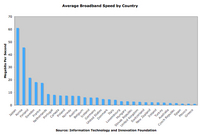 73 Democratic members of Congress signed
a letter
drafted by telco and cableco lobbyists against net neutrality.
Save the Internet has sufficiently fisked it.
My favorite point is that when AT&T was required as a condition
of acquiring Bellsouth in 2006 to abide by net neutrality,
it increased its infrastructure investments.
As soon as that two year requirement was up,
so were the investments.
(And they didn’t even honor all the requirements,
such as
a low-end $10/month service.)
73 Democratic members of Congress signed
a letter
drafted by telco and cableco lobbyists against net neutrality.
Save the Internet has sufficiently fisked it.
My favorite point is that when AT&T was required as a condition
of acquiring Bellsouth in 2006 to abide by net neutrality,
it increased its infrastructure investments.
As soon as that two year requirement was up,
so were the investments.
(And they didn’t even honor all the requirements,
such as
a low-end $10/month service.)
The simple fact is that
net neutrality was the condition under which
the Internet grew to be what it is today, which is the last bastion
of free speech and a free press in much of the world, especially
in the United States.
The only reason net neutrality is an issue is that the duopoly
(telcos and cablecos) succeeded in their
regulatory capture of the
FCC during Kevin Martin’s term as chairman and did away with much it.
The U.S. used to have among the fastest Internet speeds in the world.
Since the duopoly got their way,
the U.S. has fallen far behind
 dozens of other countries in connection speeds, availability,
and update.
While the U.S. NTIA claimed at least one user per ZIP code counted as real service.
dozens of other countries in connection speeds, availability,
and update.
While the U.S. NTIA claimed at least one user per ZIP code counted as real service.
We can let the telcos and cablecos continue to turn the Internet into cable TV, as they have said they want to do. Under the conditions they want, we never would have had the world wide web, google, YouTube, flickr, facebook, etc.
 And left to their plan, the duopoly will continue
cherry-picking densely-populated areas and
leaving rural areas,
such as south Georgia, where I live, to sink or swim.
Most of the white area in the Georgia map never had anybody even
try a speed test.
Most of the rest of south Georgia had really slow access.
Which maybe wouldn’t be a problem if we had competitive newspapers
(we don’t) or competing TV stations (we don’t).
Or if we didn’t need to publish public information like health care
details online, as Sanford Bishop (D GA-02) says he plans to do.
How many people in his district can even get to it?
How many won’t because their link is too slow?
How many could but won’t because it costs too much?
And left to their plan, the duopoly will continue
cherry-picking densely-populated areas and
leaving rural areas,
such as south Georgia, where I live, to sink or swim.
Most of the white area in the Georgia map never had anybody even
try a speed test.
Most of the rest of south Georgia had really slow access.
Which maybe wouldn’t be a problem if we had competitive newspapers
(we don’t) or competing TV stations (we don’t).
Or if we didn’t need to publish public information like health care
details online, as Sanford Bishop (D GA-02) says he plans to do.
How many people in his district can even get to it?
How many won’t because their link is too slow?
How many could but won’t because it costs too much?

John Barrow (D GA-12) has a fancy flashy home page that most people in his district probably can’t get to. Yet he signed the letter against net neutrality.
I prefer an open Internet. How about you?
 Why did the 73 Democrats sign the letter?
Could it have to do with the duopoly making massive campaign contributions
to the same Democrats
and holding fancy parties for them?
Why did the 73 Democrats sign the letter?
Could it have to do with the duopoly making massive campaign contributions
to the same Democrats
and holding fancy parties for them?
The same lobbyists are after Republican members of Congress next.
Call your member of Congress and insist on giving the FCC power to enforce net neutrality rules.
-jsq






